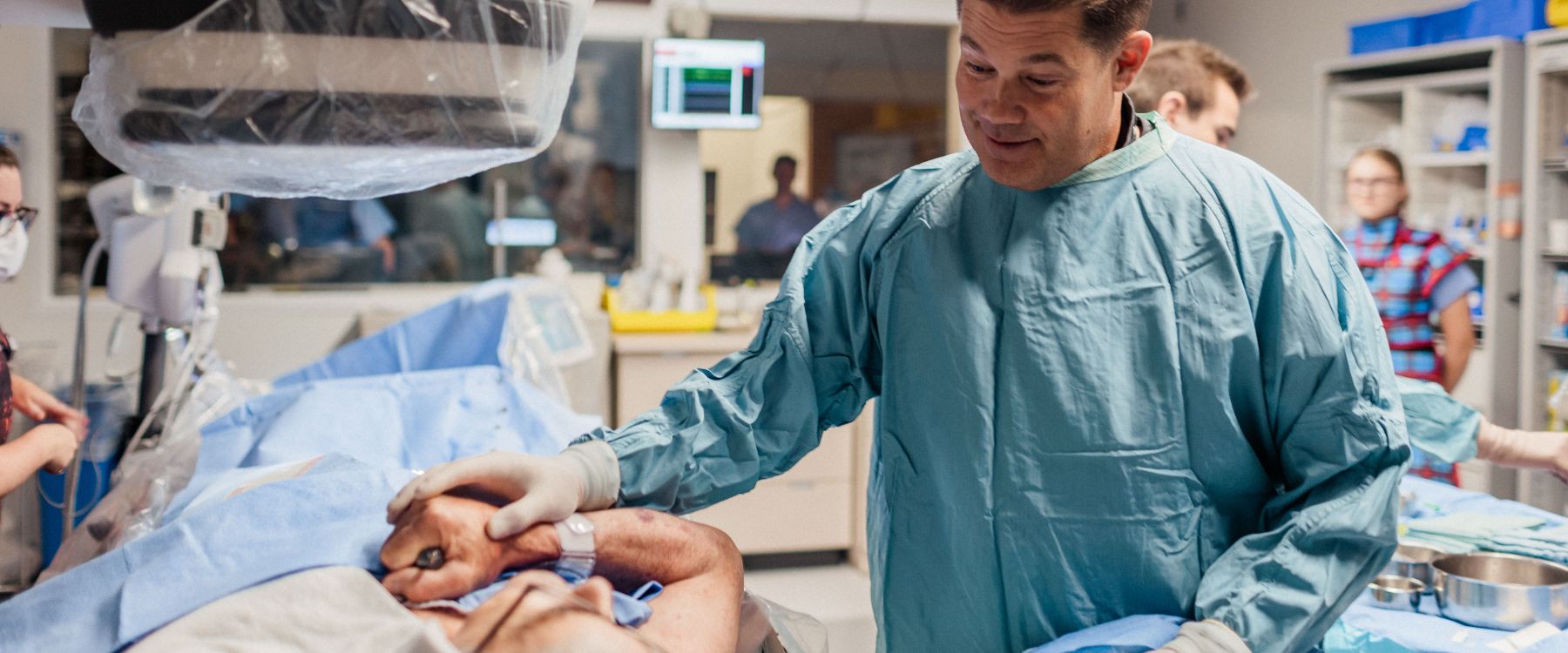多产诗人及小说家George Bowering因还能活着深感高兴。
“有一段时间我的情況很不樂觀,” 這年屆81岁的老人家坐在温哥华家里的客厅侃侃而談。
两年前,George 带同他害羞的两岁伯尔尼小狗Mickey一起到图书馆还书,但卻因心脏骤停,在公共汽车站前昏倒過去。 感谢一位路過者立即为George进行了心肺复苏,14岁的学生Ivy Zhang亦即时电召了911,甚至图书馆以及在拐角的消防厅工作人员也出来帮忙,George最终被送至温哥华综合医院 (VGH),由心脏科專家Parvathy Nair带领的一组專業醫療团队已在医院等后。
医護人員先使用冷却机为George进行搶救,嘗試将他的体温降至摄氏33度以 “保护大脑”。這台冷却机是由医院基金会的慷慨善長捐助的。
“我相信是因为一連串的專業护理,拯救了他的生命,” Nair医生说。 “从在图书馆前进行的心肺复苏,到迅速降温的冷却机,都在关键时刻起了作用
在昏迷的12天裏, George暂时失去了活动能力,但甦醒後在妻子的助下,他惊人的康复速度令他又能开始玩至愛的填字游戏 。
“我对VGH的医疗团队印象深刻,”George的14年伙伴Jean Baird说。 “我们特别感谢那位捐赠冷却机的善長。”
Nair医生指出,经历过心脏骤停的病患當中只有不到五成的人可以复原。“很幸运他还能活着。”她说。“而且他的复原得很好,比平均水平還要高。”
这个经历并没有阻碍George的创作。在他病發前的18个月,他出版了六本书。当被问到他离开VGH时他最想做什么,他认真回答想看电视的Red Sox 球賽…“以及回到办公桌再次写作。”
帮助像George一样的心脏病患者。 今天就捐助我们的心脏及肺部基金吧!
你了解心脏骤停吗?
- 每年在加拿大有约40,000個心脏骤停個案。
- 高达85%的心脏骤停個案发生在公共场所或家中。
- 在加拿大,每七分钟便有一人死于冠状动脉疾病
- 心脏节律紊乱(心律失常)仍是引致卑詩省居民生病和死亡的主因。
- 遗传性的心律和心脏疾病约影响着7,000名卑詩省省民。
- 据估计,在医院外发生的心脏骤停個案不到十分一。

